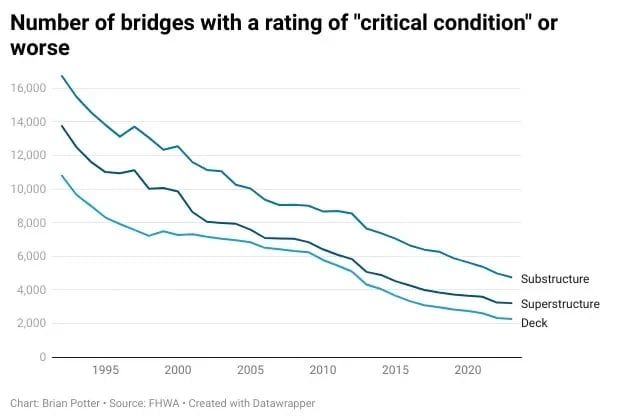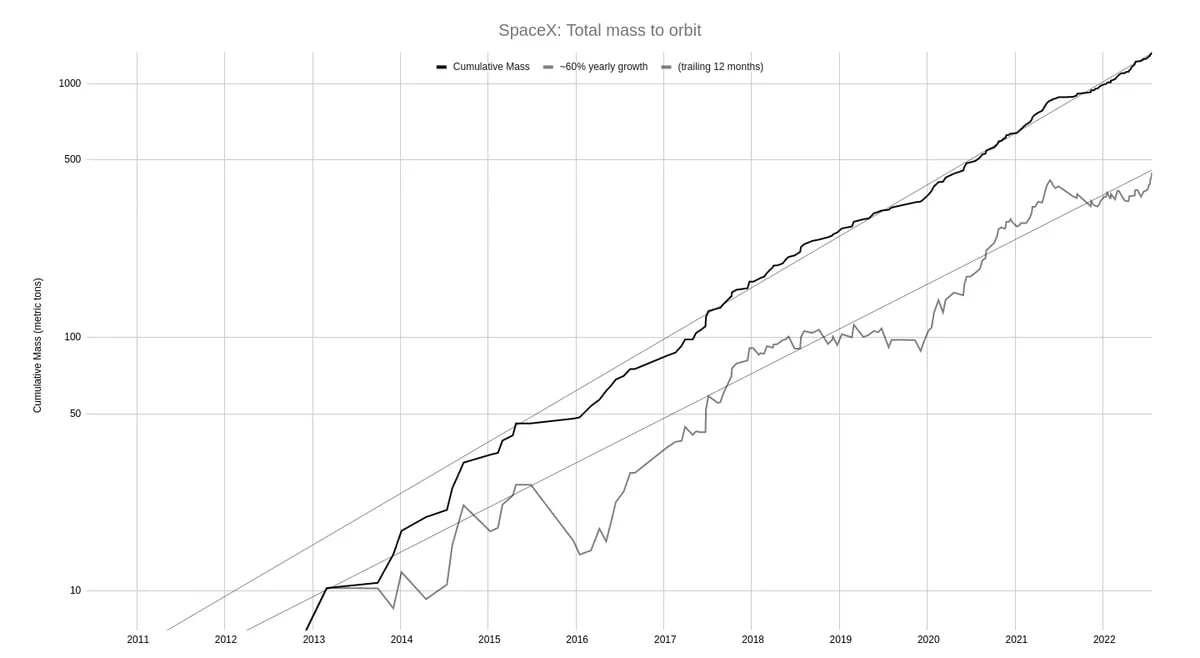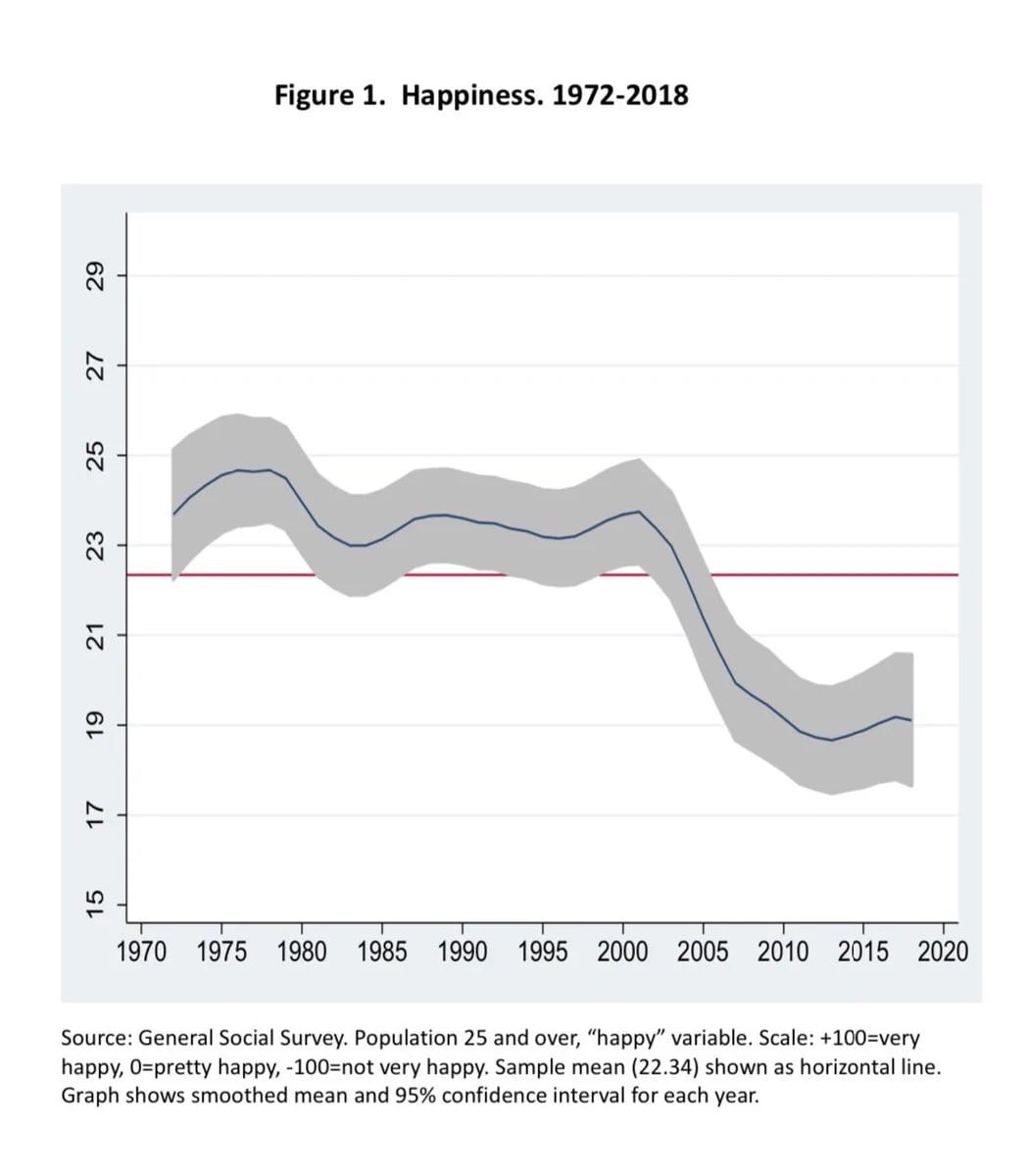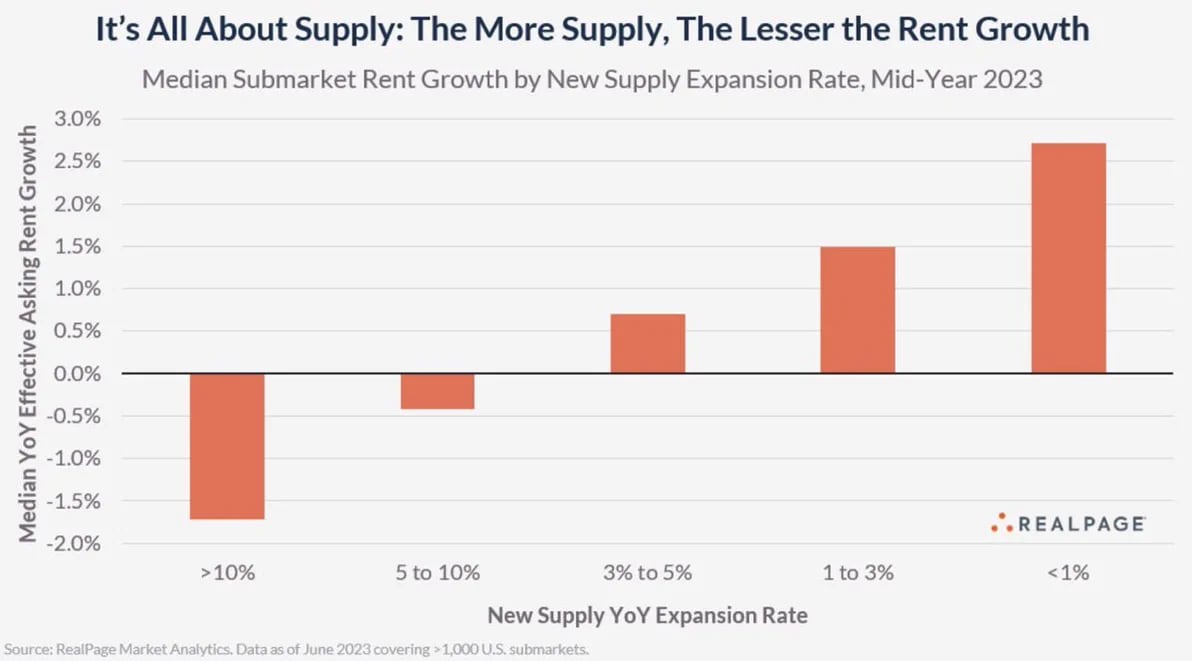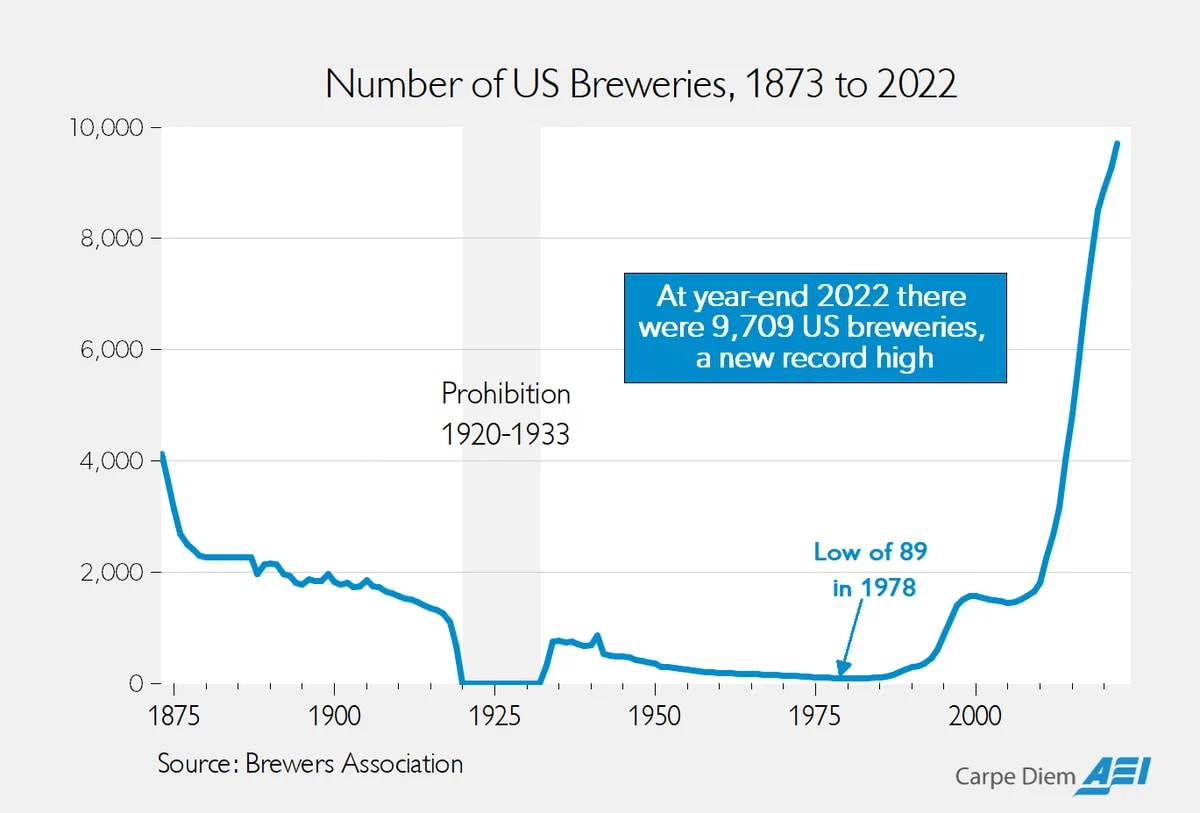Progress links digest, 2023-08-09: US adds new nuclear, Katalin Karikó interview, and more
post by jasoncrawford · 2023-08-09T19:22:03.361Z · LW · GW · 0 commentsThis is a link post for https://rootsofprogress.org/links-digest-2023-08-09
Contents
Opportunities News & announcements Other links Superconductor update Queries Quotes Tweets & threads Charts None No comments
Opportunities
- New Limit (longevity tech) is hiring for data scientists in computational biology (via @brian_armstrong)
- Anton Howes has “an idea for a paper that ought to radically revise the currently prevailing Crafts estimates for the impact of steam engines on British GDP pre-1800…. if this sounds like a paper you’d like to work on, then DM me”
- Entrepreneur First is hiring a US Chief of Staff (via @matthewclifford)
News & announcements
- Georgia Power declared Plant Vogtle Unit 3 commercially operational on July 31, making it the first “newly constructed” nuclear power unit to be added to the US fleet in decades (via @Sonalcpatel)
- Wendy’s announced they will be the first to launch Pipedream’s “Instant Pickup”
- A Japanese cyclotron has created sodium-39, an extremely unstable isotope
- UK privacy bill poses serious threat to encrypted communications?
- A previous announcement quoted @ylecun saying that “Llama-v2 is open source.” Zac Hatfield-Dodds claims this is wrong: “Meta is only offering a limited commercial license which discriminates against specific users and bans many valuable use-cases, both economic and in alignment research [LW(p) · GW(p)].” Zac works for Anthropic, although I assume this opinion is his own.
Other links
- First long-form podcast in English with Katalin Karikó, one of the inventors of mRNA technology (via @JosephNWalker)
- Jack Devanney proposes a new radiation harm model, “Sigmoid No Threshold” (SNT), to replace Linear No Threshold (LNT). See my brief comments on SNT
- “Just like the microchip brought the marginal cost of compute to zero, and the Internet brought the marginal cost of distribution to zero, generative AI promises to bring the marginal cost of creation to zero”
- “The most important policy problem is that people want unlimited access to medical services without having to pay for them. … Americans make extravagant use of procedures with high costs and low benefits”
- A war story from early PayPal days from Max Levchin
- How to write a blog & keep it going (by @NikoMcCarty)
- The worst US bridges are getting fixed
Superconductor update
- If it worked, could a superconducting induction coil make the perfect battery? And would it be world changing?
- Casey Handmer, a week ago: “I have a PhD in theoretical physics, studied BCS theory… I still have no strong intuition on LK99.” Since then—
- Something has been replicated with LK-99. You can follow a formula, make some sort of compound, and it floats when you put a magnet near it. But—
- The Condensed Matter Theory Center has good news and bad news. And more good news and bad news. But it’s mostly bad news. And: “LK-99 is likely simply a ferromagnetic material, which explains its levitating properties, according to new research from Peking University.” Here’s a good summary of what happened, which adds “high-low resistivity transition is likely due to Cu2S contamination”
- The Kalshi and Manifold markets have tanked
- Closing thought: Superconductor or not, LK99 came out of left field. But one can say the same about the last three discoveries of high temperature superconductivity
Queries
- Who are the best academic economists/social scientists based in Boston to reach out to about research that relates to housing?
- What are some examples of stealing proteins from vertebrates (rather than bacteria), with the goal of developing some new technology?
- Is there any way these days to export your list of Twitter followers?
Quotes
- Henry Bessemer on the spiritual ecstasy of the world’s first industrial-scale synthesis of steel
- Margaret Jacob on the cultural ascendancy of science in late 17th-century Europe
- The only way to prepare for problems we cannot foresee is to “increase our ability to put things right if they go wrong”
- CP Snow on why British scientists were slow to recognize the importance of advances made by applied scientists/engineers in the early 1900s
- Alchemy was risky business
- “Where some people measure progress in answers-right/test or tests-passed/year, we are more interested in ‘Sistine-Chapel-Ceilings/Lifetime’”
- The founder of TSMC was age 54 at the time
Tweets & threads
- ChatGPT now has a data upload feature and can make charts for you
- Previous to the 1950s housing prices around the world remained fairly stable. Then a stark increase happened across all developed countries
- Economists see natural experiments everywhere
- The greatest irony in science is that peer review would not survive peer review
- California’s 2019 permitting reform for ADUs more than 10x’ed the rate of building
- A lack of sulfur clouds from container ships may explain anomalous heating this year
- A lot of issues which you might see being about respect for science and technology are actually about trust in elites and institutions. Related, my interpretation of people who put their low GPA on a license plate
- What if you don’t need deep reserves of trauma and/or grievance to be motivated to build something great?
- As evidence you were wrong accumulates, you either acknowledge it, or frantically disparage anyone bearing bad news
- Ray Bradbury wrote a poem about large language models, he just didn’t know it
- Ronald Coase meets the Devil
- Anselm’s argument for shipping
- A preview of the new World’s Fair
Charts
- New paper on happiness in America since 1979. What happened in ~2002?
0 comments
Comments sorted by top scores.
